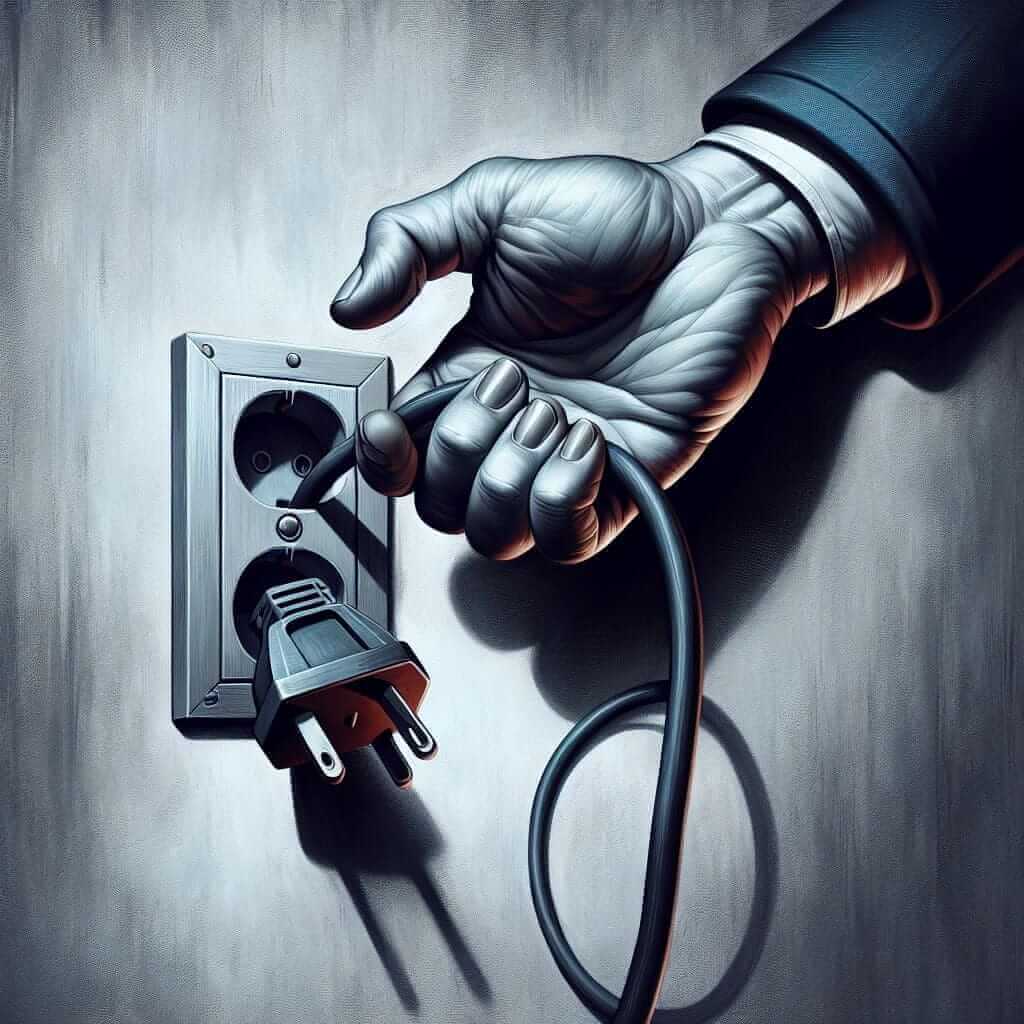Understanding idiomatic expressions is essential for achieving a high score in the IELTS exams. One such idiom is “pull the plug.” In this article, we’ll dive into its meaning, usage, and relevance in the IELTS exam.
Definition and Pronunciation
Pull the plug (idiom): To prevent an activity, effort, or process from continuing, typically by cutting off funding or support.
- Pronunciation: /pʊl ðə plʌɡ/
- Synonyms: terminate, stop, halt, discontinue, abolish
- Antonyms: support, continue, sustain, promote, advance
Examples in Context:
- Literal Use: The technician decided to pull the plug on the malfunctioning machine to prevent further damage.
- Figurative Use: Due to budget cuts, the company had to pull the plug on several projects.
 pull the plug idiom
pull the plug idiom
Analyzing the Idiom in IELTS Context
Occurrence in IELTS Exams
Idiomatic expressions often appear in both the Speaking and Writing sections of the IELTS exam. Understanding and using them correctly can significantly enhance your score. The idiom “pull the plug” is especially relevant in topics related to business, technology, and societal issues, which are common themes in IELTS.
Example Sentences with “Pull the Plug”
Here are some sentences that you might encounter or use in the various sections of the IELTS exam:
-
Writing Task 2:
- Many argue that governments should pull the plug on fossil fuels to combat climate change.
- As soon as the project ran out of funds, the board decided to pull the plug.
-
Speaking Part 2:
- Describe a time when you had to make a difficult decision. You could talk about a time you had to pull the plug on an activity due to unforeseen circumstances.
Practice Exercises
To better understand the usage, consider the following practice exercises:
-
Sentence Completion:
- After several months of failing to gain traction, the startup had no choice but to ___.
- When faced with continuous deficits, the committee decided to ___ on the venture.
-
Paraphrase the Sentences:
- Rewrite the following sentence without using “pull the plug”: “The director chose to pull the plug on the production.”
- Paraphrase: The director chose to halt the production.
Combining “Pull the Plug” with Other Terms
Enhancing your vocabulary includes understanding how idiomatic expressions interact with other words. Here are some combinations:
-
Business Context:
- Terminate a project: The team had to pull the plug on the project due to financial constraints.
- Stop funding: The investors decided to pull the plug on the new product line.
-
Technology and Innovation:
- Discontinue a service: The company decided to pull the plug on its streaming service after losing subscribers.
-
Healthcare:
- End life support: Unfortunately, the family had to make the heart-wrenching decision to pull the plug.
Related Idioms and Phrases
Here are some idioms and phrases related to pull the plug:
-
Cut off: To stop providing support or assistance.
- Example: The government had to cut off funding for the project.
-
Call it a day: Decide to stop doing something.
- Example: After ten hours of work, we decided to call it a day.
-
Throw in the towel: To give up.
- Example: After multiple failed attempts, they threw in the towel.
-
Sever ties: To end a relationship or association.
- Example: The company decided to sever ties with its partner.
Conclusion
“Pull the plug” is a versatile idiom that can be employed in numerous contexts within the IELTS exam. By understanding its meaning, usage, and related expressions, you’ll be better equipped to enhance your speaking and writing skills. Practice using this idiom in your sentences, and remember to stay contextually accurate to maximize your IELTS score.
To further explore the usage of idiomatic expressions like “pull the plug,” check out this additional resource on idioms in IELTS.
By mastering idioms and effectively incorporating them into your responses, you can significantly improve your performance in the IELTS exam. Happy studying and best of luck!


